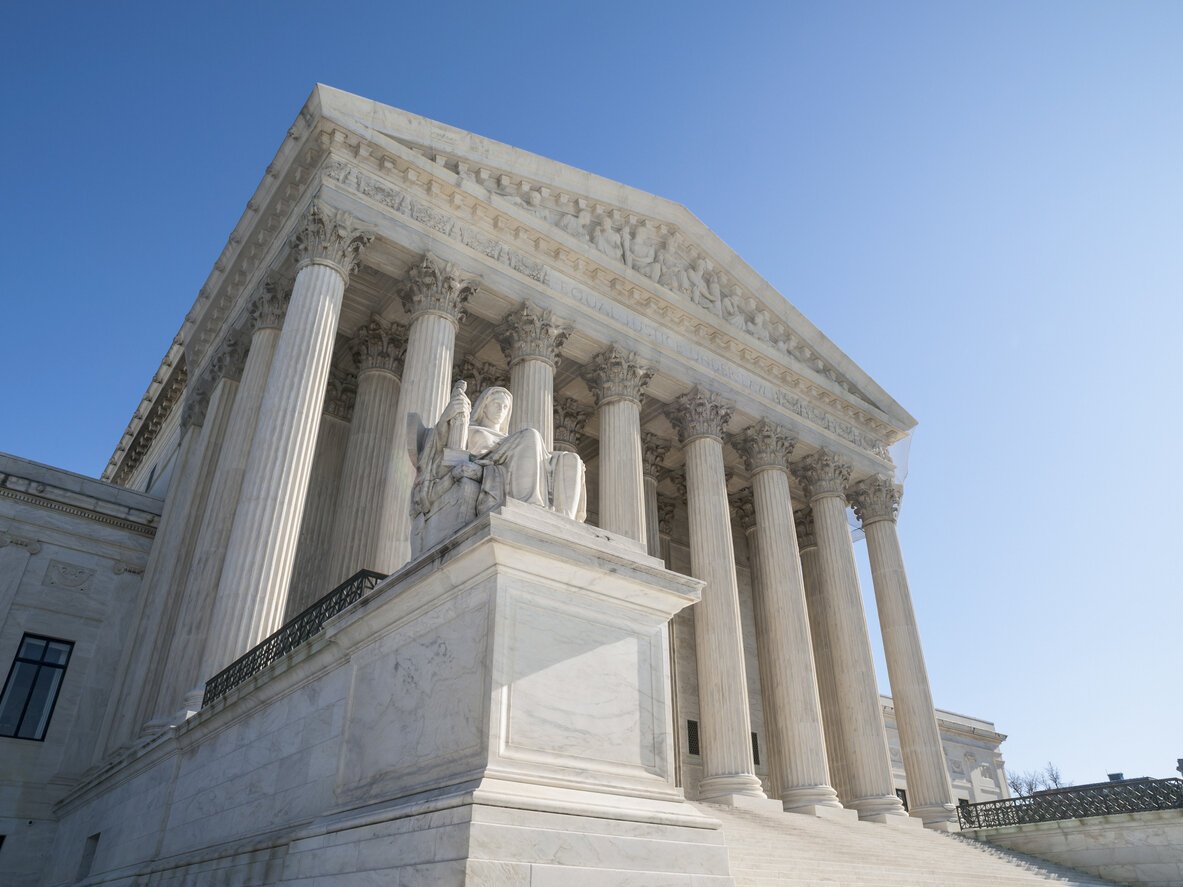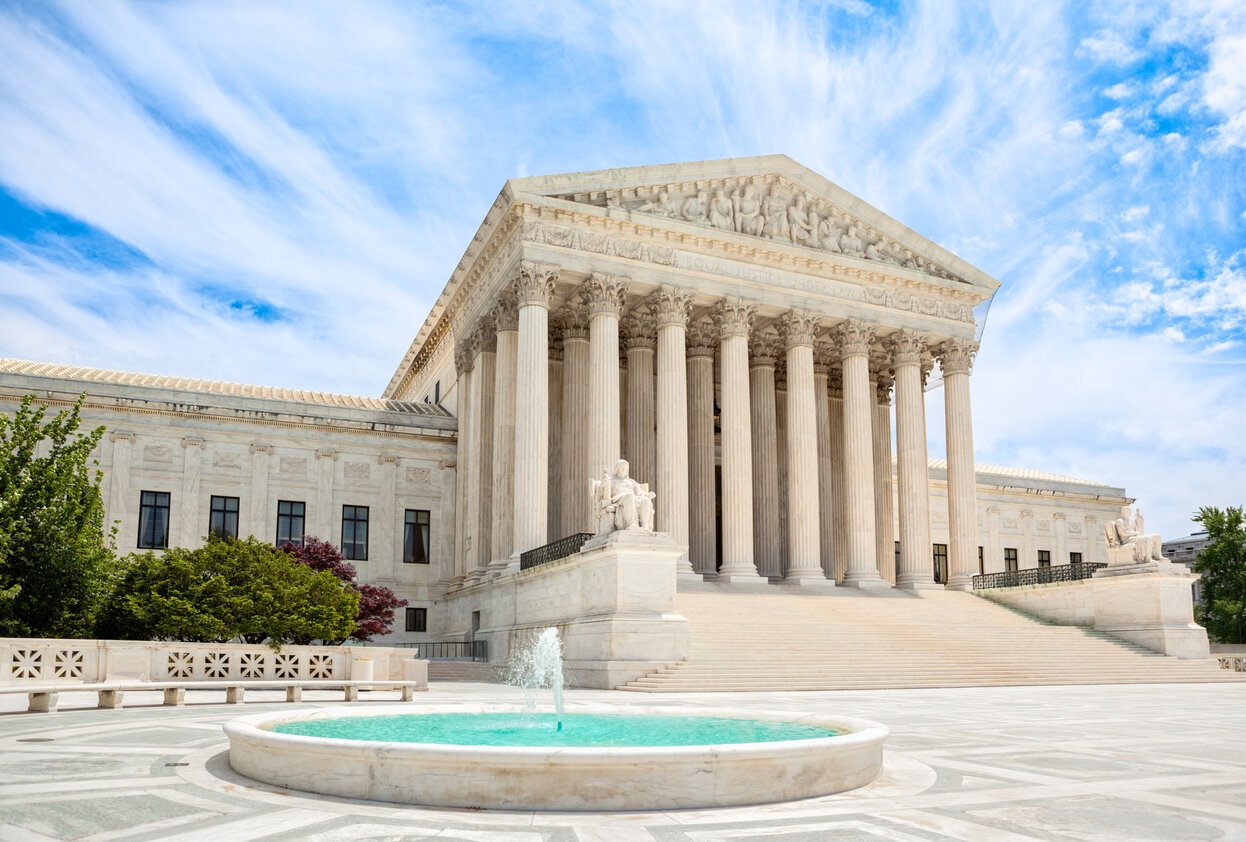Supreme Court Asked to Consider Relevance of Officer Training, Subjective Knowledge to Qualified Immunity Defense
Whether law enforcement officers are entitled to qualified immunity when they knowingly violated their training by retaliating against a person for filming an arrest the officers made in public, was submitted this month for the U.S. Supreme Court’s consideration.
Supreme Court Restricts Police Powers to Enter a Home Without a Warrant
In recent years, federal law enforcement officers have been the subject of increasing scrutiny from the media, public, and politicians.
Supreme Court Rejects “Per Se” Rule For Excessive Force Analysis
Law enforcement cannot place a resisting person in a prone position regardless of other factors, the Supreme Court held this week. “Such a per se rule would contravene the careful, context-specific analysis” the Court requires.
Supreme Court Holds That Officers’ Pursuit of a Fleeing Suspected Misdemeanant Does Not “Categorically” Justify Warrantless Entry to the Home
Yesterday, in an opinion authored by Justice Kagan, the Supreme Court issued an order on United States v. Lange, and held that the flight of a suspected misdemeanant does not always justify the warrantless entry of a police officer into a home. FEDagent previously reported on this case when the Court granted certiorari.
The Supreme Court Holds That Tribal Officers May Stop and Search Non-Indians on Tribal Lands
In February 2016, Officer James Saylor of the Crow Police Department was traveling on a public right-of-way that passes through the Crow Reservation in Montana. Saylor saw a truck parked on the side of the highway, and pulled up to see if its occupants needed assistance. Saylor approached the truck and spoke to the driver, Joshua James Cooley.
“Community Caretaking” Alone Does Not Justify Warrantless Home Entry, Supreme Court Holds
“Community caretaking” does not create a standalone doctrine that justifies warrantless searches and seizures in the home, a unanimous Supreme Court recently held.
Supreme Court to Decide on Gun Owners’ Rights to Carry Concealed Guns Outside
This week, the Supreme Court agreed to review whether the Second Amendment protects the right to carry a gun outside of the home without a license. This marks the first time in over a decade that the Court will weigh in on the Second Amendment.
Supreme Court Considering Whether “Community Caretaking” Allows Warrantless Home Entry
The Supreme Court last week heard oral argument on whether the “community caretaking” exception allows law enforcement to enter a home for the purposes of the occupant’s health and safety.
Supreme Court Hears Oral Argument in Fifth Amendment Suit Challenging Union Organization
On March 22, 2021, the Supreme Court of the United States heard oral argument in Cedar Point Nursery v. Hassid.
Dismissing FTCA Claims for Lack of Jurisdiction Can Bar Related Bivens Claims, Supreme Court Rules
When a district court addresses the merits of a Federal Tort Claims Act claim in its decision dismissing that claim for failing to legally state a claim, the FTCA bars the plaintiffs from bringing any Bivens claim on the same subject matter, the Supreme Court held today.
Agents Exposed to Personal Liability Under Religious Freedom Restoration Act, Supreme Court Rules
Government officials may be sued in their personal capacity for alleged violations of the Religious Freedom Restoration Act of 1993 (RFRA), the Supreme Court held in the case of Tanzin v. Tanvir, issued last week.
Supreme Court Denies Qualified Immunity, Finding that Law Is Clear Inmates Require Clean Cells
Trent Taylor is an inmate at the Texas Department of Criminal Justice. For six days in September 2013, Taylor claimed that correctional officers confined him in two different unsanitary cells. In the first, the floor, the ceiling, the window, the walls, and even the water faucet were covered in feces. Taylor did not eat or drink for four days because he feared that he would consume contaminated products.
Supreme Court to Decide Constitutionality of Warrantless Entry in “Hot Pursuit” of Misdemeanor Suspect
The U.S. Supreme Court will decide whether pursuit of a person who a police officer has probable cause to believe has committed a misdemeanor allows the officer to enter a home without a warrant.
Supreme Court Hears Oral Argument on Whether the Religious Freedom Restoration Act Permits Money Damages as a Remedy
On October 6, 2020, the Supreme Court heard telephonic oral arguments for Tanzin v. Tavir, which poses the question of whether the Religious Freedom Restoration Act (RFRA), passed in 1993, allows suits seeking money damages against individual federal employees, here FBI agents.
Federal Government May Retry Dismissed Oklahoma Convictions For Crimes On Creek Reservation
Thousands of Oklahoma convictions of Creek Nation members on reservation land may be dismissed following the U.S. Supreme Court’s recent decision in McGirt v. Oklahoma. In that case, the Supreme Court held that only the tribes and federal government may prosecute Native Americans living in most of Eastern Oklahoma for crimes committed there. This holding may be extended to dismiss potentially thousands of state convictions for retrial by either tribal governments or the U.S. Department of Justice.
Federal Circuit: Agencies Can Remove Burrowed Employees to Correct Illegal Appointments
On June 26, 2020, the United States Court of Appeals for the Federal Circuit held that the removal of illegally appointed employees who had otherwise not committed misconduct or performed poorly still promoted the efficiency of the service.
Supreme Court: Single-Director Structure of CFPB Violates Constitution’s Separation of Powers
On June 29, 2020, the United States Supreme Court held that restrictions on the President of the United States’ ability to fire a single director of a federal agency violates the separation of powers clause of the United States Constitution.
Supreme Court: Title VII Protects Gay, Lesbian, and Transgender Employees
On June 15, 2020, the Supreme Court of the United States, by a 6-3 vote, held that an employer who fires an individual merely for being gay or transgender violates Title VII’s prohibition on sex discrimination.



















